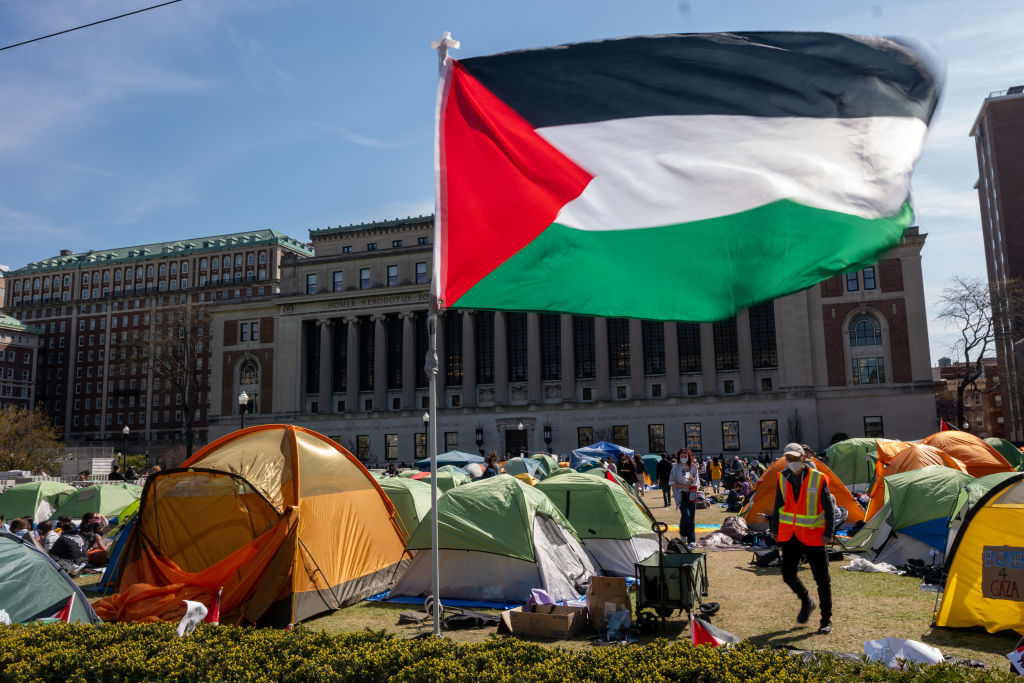Sometimes, the headlines from 2024 are reprints from 1924. “Harvard Was Unresponsive to Antisemitism,” the Wall Street Journal headlines its story on the findings of a report from the House Committee on Education and the Workforce.
Of course it was. It’s an Ivy League tradition.
“Life finds a way,” we all learned from Jurassic Park. Jewish life found a way in the United States, progressing down paths that are obvious only in retrospect. When Ivy League schools intensified their discrimination against Jewish applicants in the early 20th century, many Jewish students who were more interested in becoming doctors or lawyers than in becoming Whiffenpoofs pursued their educations at institutions such as City College in New York (now CUNY), and, whether they intended to or not, raised the academic and cultural standards of those institutions far above what they had been.
That was Jewish-American immigrant life in miniature: Shut out of Knickerbocker society in New York, Jewish immigrants and their descendants built thriving and interesting communities and institutions of their own. One way to think about modern Israel is that it represents the Jewish immigrant experience at a national scale: Expelled from many places and shut out of many others, the Jews went where they could go and made that place prosperous and intellectually rich.
And for that temerity, their enemies never quite say out loud, they must be destroyed.
T.S. Eliot, speaking at the University of Virginia, infamously observed in 1933 that “reasons of race and religion combine to make any large number of freethinking Jews undesirable.” (“Freethinking” was, in that context, a euphemism for “atheistic.”) Though the underlying ideology may have mutated, the line connecting New England’s Puritans to today’s progressives is distinct if not exactly straight. (The key historical intersection is immigrants and their affronts to Protestant sensibilities, especially involving booze. T.S. Eliot’s ancestor, Harvard professor Charles Eliot Norton, opened up a bitterly contested front in Boston politics crusading against Irish saloons; another Eliot, Charles William Eliot, was president of Harvard, a temperance activist, and a theorist of “racial purity.” At the time of his ugly Virginia remarks, T.S. Eliot held a one-year appointment at Harvard as the Charles Eliot Norton professorship of poetry.) But the case against the Jews today is fundamentally the same as it was in Caligula’s time: The Jews insist on being Jews.
American Jews are far from politically monolithic. Some of them are irreligious socialists such as Sen. Bernie Sanders, and some are religious traditionalists and political conservatives, or else one but not the other. You could make a complicated chart, and it would not matter: Jewish students are not being bullied and terrorized on college campuses because they have a certain opinion about Israel and Hamas; Jewish children in New York are not being targeted because of their political beliefs; the L’Simcha Congregation in Pittsburgh wasn’t holding a fundraiser for the Zionist Organization of America when a terrorist massacred 11 members at worship. It would be a terrible thing to subject people to violence and terror for their political beliefs, but that is not what is happening. Jewish Israelis are massacred because they are Jews. Jewish Americans are terrorized because they are Jews.
The Jews are still Jews, and that is sufficient for their enemies: Hamas in Israel, the friends of Hamas (and Hamas) at Columbia.
And at Harvard. The Wall Street Journal reports on a congressional committee’s findings:
One senior undergraduate wearing a yarmulke was spat on, according to the report. Another Jewish student was followed back to her dormitory while a tutor screamed at her. Threats on a social-media chatboard available only to those with Harvard emails included calls to “gas all the Jews” and “let em cook,” the report said. Those comments drew 25 net upvotes.
Rules to prevent this sort of behavior fell under antibullying harassment policies, which are under the purview of the school’s office of Equity, Diversity, Inclusion and Belonging. The office didn’t respond to complaints, the report said.
There are reports of Jewish families with high-achieving children spurning offers from Harvard and other Ivy League schools to seek their educations in saner institutions. I suspect that the trend, if it is a real trend, will not prove durable: An Ivy League education opens a great many social, political, and economic doors that are not unlocked by a degree from Baruch College, worthy as that institution may be. But if it is an enduring development, and if schools such as CUNY are no longer a desirable option—and there is some reason to suspect that is the case—then other institutions will, if they are smart enough, avail themselves of the benefit of those refugees from the Ivy League.
With the absurdly sanctimonious reaction of elite opinion to the war in Gaza, the Jews in Israel are learning a lesson that is being learned simultaneously, albeit in a less dramatic way, by the Jews of Harvard, Columbia, et al.: You never have as many friends as you think. It would be tempting to write that Harvard has been unresponsive to antisemitism since the Coolidge administration, but, in truth, Harvard has been unresponsive—or worse—to antisemitism since the reign of Charles I.
It’s a tradition.







Please note that we at The Dispatch hold ourselves, our work, and our commenters to a higher standard than other places on the internet. We welcome comments that foster genuine debate or discussion—including comments critical of us or our work—but responses that include ad hominem attacks on fellow Dispatch members or are intended to stoke fear and anger may be moderated.
With your membership, you only have the ability to comment on The Morning Dispatch articles. Consider upgrading to join the conversation everywhere.